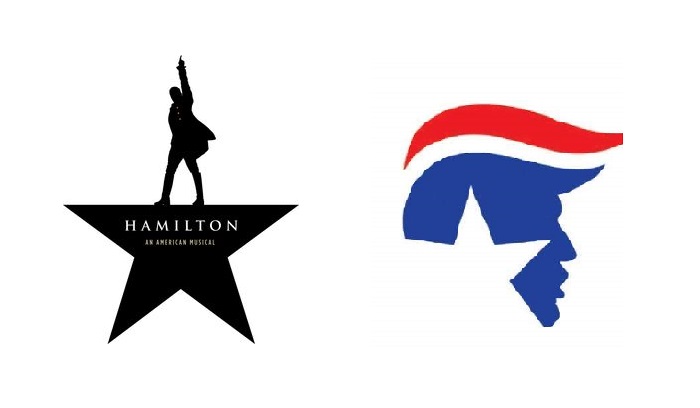Over the past year, two American figures have each achieved an unlikely political stardom: Alexander Hamilton and Donald Trump. A short time ago, a man would have been drowned in derision if he suggested that Hamilton would become the subject of a hit Broadway musical or that Trump would become the president of the United States.
Just as our politics have been effectively taken over by this most unconventional politician, we have been reminded of the statesmanship of this great but often neglected founder. This remarkable coincidence invites us to examine Trumpism in light of Hamiltonianism. Doing so, we find that there is a certain similarity of political substance between Trump and Hamilton, and yet also a no less important difference in political style. Exploring these comparisons yields insights that are both reassuring and alarming.
Similar Political Substance: Trade, Foreign Policy, and Immigration
First, let us consider political substance. Trump ran for the presidency on three main issues: trade, foreign policy, and illegal immigration. On the first two of these issues, his positions are immediately recognizable as Hamiltonian. The third is more complicated, but even there Trump’s approach is arguably animated by a Hamiltonian spirit.
Start your day with Public Discourse
Sign up and get our daily essays sent straight to your inbox.Hamilton wanted the government to pursue a policy of supporting American manufacturing because he believed that a flourishing manufacturing sector was essential to American power and prosperity. Similarly, Trump wants to return to such a policy because he believes that government policy—such as trade agreements that create incentives to move American manufacturing offshore—has hollowed out America’s industrial base. Moreover, Trump’s reasons for wanting to promote American manufacturing are basically the same as Hamilton’s. He believes that to be secure, prosperous, and independent, the nation must be able to make the things it needs for itself.
Trump’s Hamiltonianism is no less evident in his approach to foreign policy. Aiming to correct what he perceived as a misguided idealism, Hamilton publicly argued that the main goal of a government’s foreign policy is and should be to secure the interests of the country that government represents. Nations and governments, he contended, do not act on universally benevolent motives. That is, they do not (and should not) help each other just for the sake of helping each other.
Trump’s approach to foreign policy seems to be informed by such Hamiltonian principles. One of Trump’s slogans—“America first”—indicates that the primary purpose of American policy should be to promote American interests. For Trump, as for Hamilton, the aim of our foreign policy should not be to promote humanitarian ideals but to secure American power and prosperity. This places Trump at sharp odds with the more moralistic approach to foreign affairs that has been promoted in recent decades by both Democrats and Republicans. Trump often criticizes the results of our idealistic foreign policy in crudely self-interested terms: what do we get out of it? The crudeness of the way Trump poses the question, however, does not change the fact that he is essentially asking the same question that Hamilton would.
It is worth noting here that Hamilton’s approach to foreign policy, while it rejects moralism, is not amoral or entirely selfish. Although Hamilton believed that governments act mainly to promote their own nations’ interests, he also emphasized that they are obliged to respect justice in doing so. Nations must, he insisted, keep to their agreements and respect the established rules of international relations. In addition, it does not follow from Hamilton’s rejection of benevolence in foreign policy that nations will reject a spirit of cooperation. They will cooperate, but they will do so because they see that there is some common advantage to be gained thereby. This, again, is essentially the view that Trump is promoting. As he said in his victory remarks:
I want to tell the world community that while we will always put America’s interests first, we will deal fairly with everyone, with everyone—all people and all other nations. We will seek common ground, not hostility; partnership, not conflict.
On Trump’s third major issue, illegal immigration, it is harder to draw a comparison. Illegal immigration was not an issue in Hamilton’s day, so we have no record of his thinking about it as we have of his thinking about trade and foreign policy. Nevertheless, there is a sense in which Trump’s disposition toward illegal immigration is rooted in a kind of Hamiltonian thinking.
Hamilton usually positioned himself as a defender of lawful social order, because he believed it was fragile and tended to break down if the government and citizens did not make a deliberate effort to prop it up. Thus, even during the Revolution, which he supported and in which he fought, he worried that the people would develop habits of lawless action. Accordingly, Hamilton thought it was dangerous for the government to appear weak and contemptible, as it tends to appear when it is unable or unwilling to enforce the laws. Thus he concluded, after a period of forbearance, that it was necessary for the government to make a massive show of force to put down the Whiskey Rebellion in western Pennsylvania. To allow these rebels to get away with not obeying the law and actively organizing themselves to obstruct the enforcement of the law, was, he believed, an invitation to chaos. Trump’s complaints about illegal immigration, and his more general invocations of law and order, seem to be animated by a similar kind of thinking.
None of this is to say that Hamilton, if he were here, would endorse Trump’s program. Hamilton’s political thinking was not ideological but pragmatic, and our different circumstances might lead him to different conclusions than the ones he reached in his own day. This is to say, however, that Trump’s approach to politics has real roots in American political history. We must recognize this if we are to keep from misunderstanding it, as we have done with other political movements of the recent past.
Just a few years ago, many American intellectuals and commentators reacted with horror to the Tea Party movement, which they seemed to regard as some alien force unprecedented in American politics. In truth, the Tea Party was instantly recognizable as a manifestation of the political impulses embodied in Hamilton’s great political rival, Thomas Jefferson. There has always been a Jeffersonian strand in American politics—skeptical of government power and insistent that the federal government, in particular, needs to be bound down by clear constitutional limits. Similarly, there has always been a Hamiltonian strand in American politics, one that emphasizes vigorous government action in defense of the nation’s interests and public order. The rise of a movement committed to either position should not alarm us as a sign of the end of American politics as we know it. It should instead strike us as a recurrence of political impulses that we have seen in the past.
Differences in Political Style: Populism vs. Elitism
The comparison to Hamilton does not let Trump entirely off the hook, however. For if we turn to the question of political style—which is no less important—we find that Trump deviates sharply from Hamilton, and in a way that would no doubt cause Hamilton serious concerns. Simply put, Trump is a populist while Hamilton decidedly was not. Trump has run for and won political office by trashing our economic and governmental elites as incompetent and disloyal to the people of the country. In contrast, Hamilton tended to think of the wealthy and governing elites as the enlightened element of the community, to which its interests could safely be entrusted.
Moreover, Hamilton would think that the contempt that Trump has heaped upon our elites is dangerous. This was Hamilton’s critique of his Jeffersonian enemies in his own day. Jefferson’s allies in the press did everything in their power to present the government—the Washington administration of which Hamilton was the most important member after the president himself—as hostile to the people and the Constitution. Hamilton not only resented these attacks personally, he also thought them very dangerous to the future of the country. He observed that a government like ours—one based on the consent of the people—can only stand if it maintains the people’s confidence. Once lost, that confidence can be difficult to regain. Thus, he thought the Jeffersonians were playing a very perilous game. They hoped to win power by making the government odious, but if they successfully destroyed people’s confidence in their own government, Hamilton foresaw that they would find it very difficult to govern themselves.
This is a great danger that Trump has unleashed on himself and his administration by campaigning the way he did. The people feel betrayed, and Trump has played upon that feeling by condemning the country’s governing elites as incompetent and corrupt. And a people who think that way may prove very difficult to govern, especially if they feel let down by the one who rode their dissatisfaction to power. Trump might defend himself by saying that our elites really are incompetent and corrupt. I have little doubt that he believes it. And, given how far our elites have strayed from a Hamiltonian approach to politics, Hamilton himself might agree that our elites deserve some criticism. But this truth—if it is true—does not negate the fact that, as Hamilton warned, it is very dangerous to undermine a democratic people’s confidence in their own governing classes. Here is where Trump’s approach to politics runs contrary to Hamilton’s emphasis on social order, which requires a certain deference to those who govern.
While Trump’s political substance is recognizably Hamiltonian, his populist political style is anti-Hamiltonian and, by Hamilton’s lights, fraught with peril—both for Trump and for the country. If Trump cannot govern in a satisfactory way, he has opened the door to something very bad—either widespread disengagement from politics or the rise of a new political movement even more angry than the one he has led himself. If there is anything reassuring to be found in this situation, it is that Trump at least seems aware of the problem. In his victory speech he noted that his election was a “historic event,” but added that for it “to be really historic, we have to do a great job.”
To this, Hamilton would surely reply: “You’d better.”














